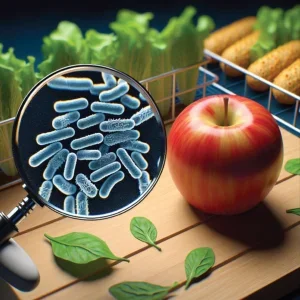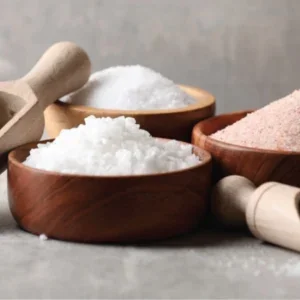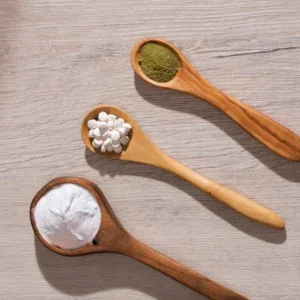At times, we all feel exhausted, fatigued and irritable, and wonder what the reason might be. The explanation might be that your diet is failing to provide the calories your body needs to fuel its daily energy expenditure. Just as an athlete requires a level of nourishment that enables him or her to achieve peak performance and recover from any injuries they sustain as quickly as possible, your body needs a sufficient supply of nutrients to cope with the everyday demands placed upon it.
Performance ingredients
Research states that planned scientific nutritional strategy with optimised training programmes can help athletes improve performance and endurance, recover faster from intense training and avoid overtraining.
Furthermore, sports and performance nutrition has witnessed a radical change in recent times. Today, it is gaining popularity among athletes seeking peak physical fitness and fitness enthusiasts alike.
A number of safe and scientifically well-established natural products have been pitched by ‘fair players’ of the health industry as supplements with ergogenic effects. However, in recent years, research on the potential biological role of dietary nitrates, particularly as a sports nutrition supplement, has gained much attention, with a plethora of evidence suggesting that when taken in the right dosages, inorganic nitrates can impart a significant influence on exercise efficiency, reduced fatigue, power output and duration of exercise − overall performance enhancement.
The one to beet
In 2009, the world of athletics learned about the performance benefits of dietary nitrates and in turn the positive influences of beetroot juice. Inorganic nitrate (NO3) is abundant in green leafy vegetables, including beetroot, as well as in various other foodstuffs.
In humans, following ingestion, dietary nitrate is converted to nitrite (NO2), which is then stored and circulated in the blood. In conditions of low oxygen availability, this NO2 is converted into nitric oxide (NO), an important physiological signalling molecule, known to play a number of important roles in vascular and metabolic control.
Recent discoveries in the field of nitrate and nitrite biology not only emphasised on understanding their mechanistic insights, but also helped nutritionists and health professionals realise the importance of dietary nitrate and nitrite, especially where sports and exercise were concerned.
In a double-blind crossover study, nitrate-rich beetroot extract showed faster oxygen uptake kinetics during modern-intensity physical work or hypoxic condition when compared to nitrate-depleted beetroot extract. In addition, an improvement in tolerance to severe-intensity exercise under hypoxic condition was seen in the group consuming dietary nitrate, but not under normal conditions.
Exhaustive research
In another randomised double-blind crossover study, volunteers were provided with dietary supplementation with nitrate (0.1mmol/kg a day), equivalent to the amount found in 100–300g of a nitrate-rich beetroot or placebo (NaCl) for two days before the test. Results demonstrated that nitrate supplementation resulted in reduced oxygen consumption, while time to exhaustion tended to increase.
During heavy exercise, the body reaches its maximum capacity to consume oxygen, and dietary nitrate was found to reduce this, without affecting the increase in exhaustion time.
The role of dietary nitrate supplementation in enhancing performance during simulated competition, such as cycling, was evaluated in a randomised crossover study.
During the study, cyclists were asked to consume 500ml of beetroot juice (BR; ~6.2 mmol of nitrate) or placebo (PL), 2.5 hours before the completion of 4.0km and 16.1km cycling time trials.
Results indicated that BR significantly increased the mean power output during the 4.0km and 16.1km cycling time trials, with performance improving by 2.8 and 2.7%, respectively. Sabeet, a rich source of inorganic nitrate from red beetroot (Beta vulgaris), is a standardised extract (containing a minimum of 2% nitrate) from Sabinsa. The extract is water-soluble in nature and therefore has more bioavailability. In a recent clinical study, 20 healthy male participants randomly received 5g of Sabeet or placebo for 14 days before their daily exercise bout.
Lower plasma NO level in the Sabeet group post-exercise suggested increased circulatory NO, resulting in improved exercise and cardiovascular performance (p<0.05) when compared with the placebo.
Significant decrease in inflammatory biomarkers post-exercise was also observed in the Sabeet group.
Sabeet's benefits include:
- verstatile administration (tablets, capsules, food formulations and beverage), thanks to its water-soluble nature
- proven athletic performance benefits, backed by a number of clinical studies
- its contribution to maintaining general health and wellness
- suitability as a safe and cost-effective food colourant.
Dubius results
Zeroing in on the suitable, effective and safe dietary source of nitrate is every bit as important as its benefits. Although there are currently many natural sources of nitrate available in the market, not all of them have safety and efficacy profiles that can be considered on a par with beetroot extract, and some may not even be suitable for human consumption.
A typical example would be Amaranthus dubius, commonly known as red spinach. It has oxalates and hydrocyanic acid, which are found to be detrimental to health. It is also not a clinically well documented source of nitrate for safe consumption.
References available on request.






